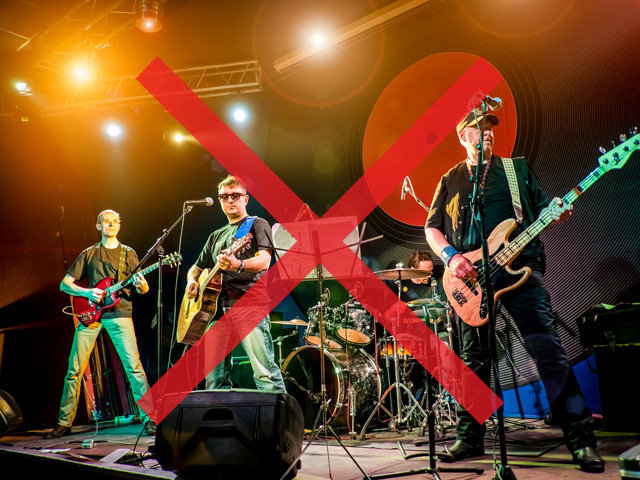Be done or get done? (B1)
Passive voice (321)
Trpný rod
Na Landigo se dnes zaměříme na použití slovesa GET v trpném rodě – někdy může nahradit sloveso BE.
BE a GET v trpném rodě – procvičování:
Na tvorbu trpného rodu máme samostatnou lekci: Is made, was made... (A2)
Poor Harrison! He got injured again during the last game.
|
He was injured.
|
|
He got injured.
|


V trpném rodě je běžně sloveso BE + třetí tvar slovesa (done, injured, fixed...). Místo BE můžeme někdy použít GET:
|
It must be done.
|
Musí se to udělat. |
|
It must get done.
|
|
|
He was injured.
|
Zranil se. |
|
He got injured.
|
|
|
The phone will be fixed.
|
Telefon bude opraven. |
|
The phone will get fixed.
|








GET používáme obvykle:
- V hovorové angličtině
- S něčím nenaplánovaným/neočekávaným
- Se změnami a ději (ne se stavy)
- V stálených spojeních typu GET MARRIED, GET DRESSED, GET LOST








BE DONE = univerzální
GET DONE = hovorové
Obecně platí, že BE je v trpném rodě univerzální – může se použít prakticky v každé situaci, zatímco GET se používá především v hovorové angličtině:
| Jakýkoliv kontext | Neformální kontext |
|---|---|
|
I wasn't offered the promotion, I was fired instead.
|
I didn't get offered the promotion, I got fired instead.
|
|
The tent can be easily damaged by strong winds.
|
The tent can get easily damaged by strong winds.
|
|
I hope you won't be hurt.
|
I hope you won't get hurt.
|
My car is getting repaired now. It'll be ready by Friday.
| Hovorovější: |
It's getting repaired.
|
| Neutrální: |
It's being repaired.
|


If you don't want to get sunburned, put on sunscreen.
| Hovorovější: |
You don't want to get sunburned.
|
| Univerzální: |
You don't want to be sunburned.
|


The guy should have gotten punished for what he did.
| Hovorovější: |
He should have gotten punished.
|
| Neutrální: |
He should have been punished.
|


GET = nenaplánované, neočekávané
GET často používáme, když se přihodí něco nenaplánovaného a nečekaného. Obvykle je to také negativní:
|
Terry got killed in the line of duty by a drug dealer.
|
|
If you got stopped by the police, what would you say?
|
|
Aren't you afraid your expensive car will get stolen or scratched?
|
I got locked out of the room, so I had to ask the front desk for another key.
| Nenaplánované + negativní: |
|
I got locked out.
|
|
I was locked out.
|


What's happening? Is Daniel getting arrested?
| Neočekávané + negativní: |
|
Is he getting arrested?
|


GET = změny a děje (ne stavy)
GET můžeme místo BE použít, pokud mluvíme o změnách nebo dějích:
|
The motorbike was broken.
|
Motorka se rozbila. |
|
The motorbike got broken.
|
Pokud mluvíme o stavech, lze použít pouze BE:
|
The motorbike was broken.
|
Motorka byla rozbitá. |
You need to get involved more in the planning of our road trip.
| Děj: |
|
You need to be involved.
|
|
You need to get involved.
|


Did you get kicked off the team because you didn't go to practice regularly?
| Děj: |
|
Were you kicked off the team?
|
|
Did you get kicked off the team?
|


Be known, be believed, be uderstood...
GET obvykle nepoužíváme se slovesy typu KNOW, BELIEVE, UNDERSTAND, CONSIDER nebo LIKE:
|
Is everything understood?
|
|
Very little is known about Antarctic killer whales.
|
|
Danny Smalls is considered to be a hardworking person.
|
John Madison is believed to be the richest person in the city now.
| He gets is believed to be... |
| He gets is known to be... |
| He gets is considered to be... |


This beach was liked by all locals and tourists alike.
| It got was liked... |
| It got was loved... |
| It got was adored... |


Get married, get dressed, get lost...
V některých ustálených spojeních, která vyjadřují změnu, používáme pouze GET:
|
get married
|
oženit se |
|
get divorced
|
rozvést se |
|
get dressed
|
obléci se |
|
get changed
|
převléci se |
|
get scared
|
začít se bát |
|
get frightened
|
polekat se |
|
get lost
|
ztratit se |
Porovnejte:
|
get married
be married
|
oženit se být ženatý |
|
get dressed
be dressed
|
obléci se být oblečený |
|
get frightened
be frightened
|
polekat se být polekaný |
Being married to someone for fifty years takes patience.
|
being married
|
být ženatý |
|
getting married
|
oženit se |


Erica was still married last month. Now, she has gotten divorced.
| Stav: |
She was married.
|
| Změna: |
She has gotten divorced.
|


Don't worry. We won't get lost.
|
get lost
|
ztratit se |
|
be lost
|
být ztracený |


Every time I read train schedules, I get very confused.
| Změna: |
|
I get confused.
|


BE a GET v trpném rodě – shrnutí a tip na závěr:
- BE → neutrální
- GET → hovorové
- GET → nenaplánované, neočekávané
- GET → změny a děje (ne stavy)
- Doporučujeme si procvičit BE a GET v trpném rodě (passive voice) v našich cvičeních.
